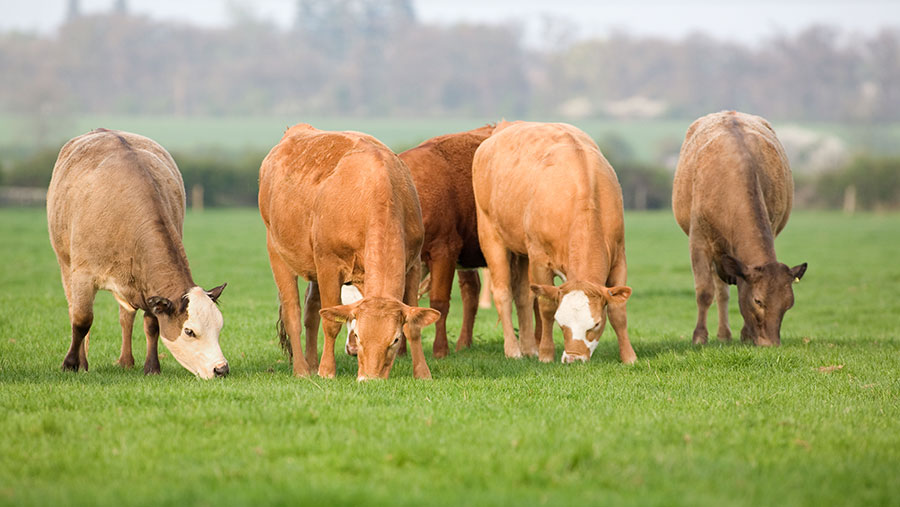Beef prices match record high levels
 © Tim Scrivener
© Tim Scrivener Deadweight cattle prices have risen to match the record high seen back in May, AHDB figures show.
In the week ending 7 August, the GB all-prime cattle average rose by 2.2p/kg to reach 407.3p/kg – 38p higher than the same week in 2020.
Tight supply and continued retail and wholesale demand are reportedly supporting prices.
See also: 8 steps to get started with regen grassland management
West Country-based livestock co-op CQLP said prices were being driven by a lack of cattle, with fewer coming forward than in previous years.
Shelley Lockett, marketing and procurement officer at CQLP, said in the South West there has been strong demand for all types of cattle, especially for native-breed animals.
GB deadweight cattle prices up across the board
Latest deadweight prices compared with previous week:
- Steers (average) 409.0p/kg (up 2.6p)
- R3 steers 415.3p/kg (up 1.9p)
- Heifers (average) 407.1p/kg (up 1.9p)
- R3 heifers 413.9p/kg (up 0.6p)
- Young bulls (average) 400.3p/kg (up 0.4p)
- Cows (average) 294.3p/kg (up 1.9p)
Source: AHDB (Week ended 7 August)
Liveweight
GB auction markets on 12 August averaged 238.8p/kg across prime livestock groups on a slightly reduced throughput overall. Steers were up by 7.7p on the previous week to average 232.9p/kg, while heifers averaged 260.7p/kg up by 10.3p on the week.
Jack Pickup, auctioneer at Gisburn Auction Mart, said cattle had been holding a good trade across all prime groups, with continental breeds taking the top prices.
On Thursday 12 August, trade for young bulls at Gisburn had reportedly been “on fire”, averaging 214p/kg, while heifers averaged 222p/kg and steers 212p/kg.
Supply
Defra production figures for July show throughputs of prime cattle at abattoirs were 10% lower than the same month last year. UK prime slaughterings in July totalled 162,200 head – a decrease of 17,700 compared with July 2020 levels.
During the first seven months of 2021, total prime cattle slaughterings in the UK were down by 4% on the previous year.
Duncan Wyatt, lead analyst at the AHDB, said: “Numbers on the ground have been lower for some time, both here and in Ireland – the major source of our imported beef. This has been keeping the market tight and supporting prices against a background of good demand for British beef in particular.
“The longer-term prospects do not show a dramatic recovery in the UK supply situation, although in the medium term, more cattle may become available next year.”
